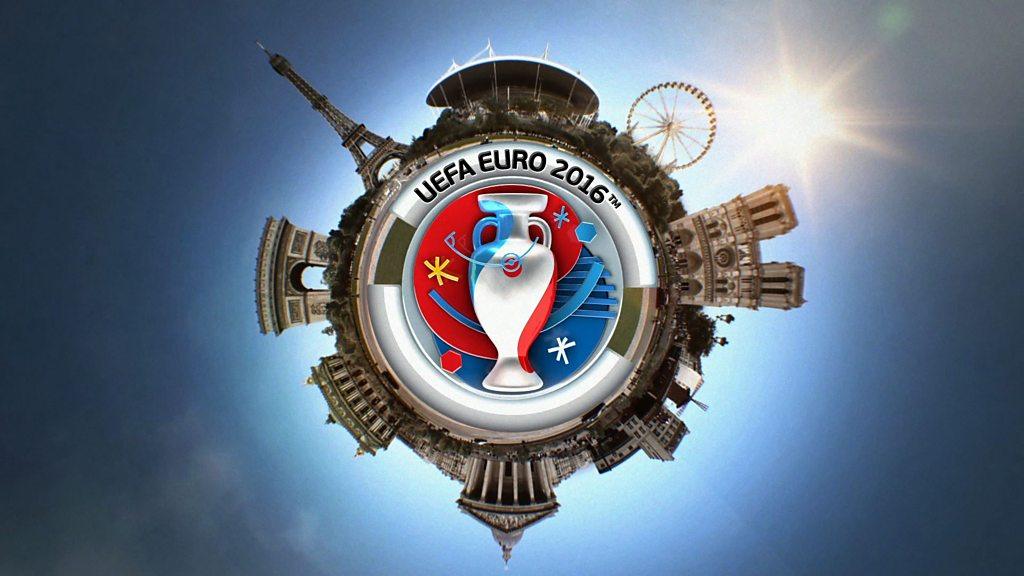Beleaguered France needs a successful Euros
- Published
Special forces have been conducting training exercises as part of preparations for Euro 2016, as sports editor Dan Roan reports
If ever a country needed an event to be a success, it is France right now on the eve of Euro 2016.
Some 210 days after suicide bombers began a harrowing night of terror at the Stade de France stadium in Paris, an attack that eventually cost the lives of 130 people, the European Championship will get under way at the same venue on Friday, when the hosts take on Romania.
It is sure to be an emotionally charged evening of celebration, togetherness, defiance, and remembrance. But also of trepidation.
The hope here is that the competition can help France demonstrate its way of life is resilient after November's attacks, and the Charlie Hebdo killings the previous January.
There is also hope the host nation can emulate the multi-racial World Cup winning team of 1998, and be a unifying force for good - and that the first major tournament to be held since Fifa's great corruption scandal erupted just over a year ago can finally put the focus back on the sport itself, helping football to recover from 12 months of disgrace.
But rarely before has a major international sports event such as this taken place amid such heightened security concerns.
November's attacks, and the subsequent atrocities in Brussels, in March, meant there were already fears jihadists were plotting to target Euro 2016, with reports that the so-called Islamic State (IS) cell responsible intended to carry out another assault on the tournament.
Last month, it was reported that data found on a laptop used by Paris attacker Salah Abdeslam, external suggested jihadists wanted to use suicide bombs, assault rifles and even drones carrying chemical weapons to attack England and Russia fans in Marseille this weekend.
The anxiety has only intensified this week.
The US and British governments have both warned fans they could be at risk. And, according to Ukraine's security service, a French citizen arrested armed to the teeth with an arsenal of weapons had been planning attacks to coincide with the tournament.
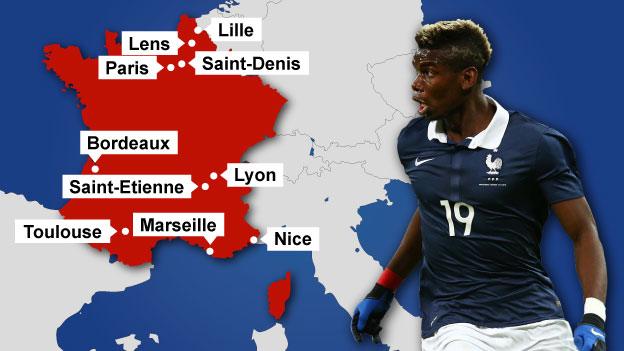
Ten French stadiums are being used to host Euro 2016
Crowd trouble during the French cup final, external at the Stade de France last month, worries over the safety of a giant fan zone next to the Eiffel Tower,, external and recent transport strikes have also done little to breed confidence.
Little wonder, perhaps, that Germany defender Jerome Boateng - who played in the November friendly against France - has told his family to stay away from the matches for fear of a repeat.
According to Richard Walton, the former head of counter-terrorism at New Scotland Yard, the threat to Euro 2016 is "more acute than for any other international sporting event in history".
Organisers Uefa, and the French authorities, insist they have done everything possible to keep the 2.5 million spectators expected at the 51 matches safe.
Some 90,000 police and military personnel are on duty, and security measures have been intensified at the 10 stadiums, the host-city fan parks, and at transport hubs.
A national state of emergency has also been extended to cover the duration of the competition.
Even in tranquil Chantilly, where the England team is based, the unprecedented security operation is obvious.
Armed troops are on constant patrol outside the squad's luxury hotel.
And reports of dramatically realistic terror training drills in various host cities are a regular feature on French TV news bulletins.
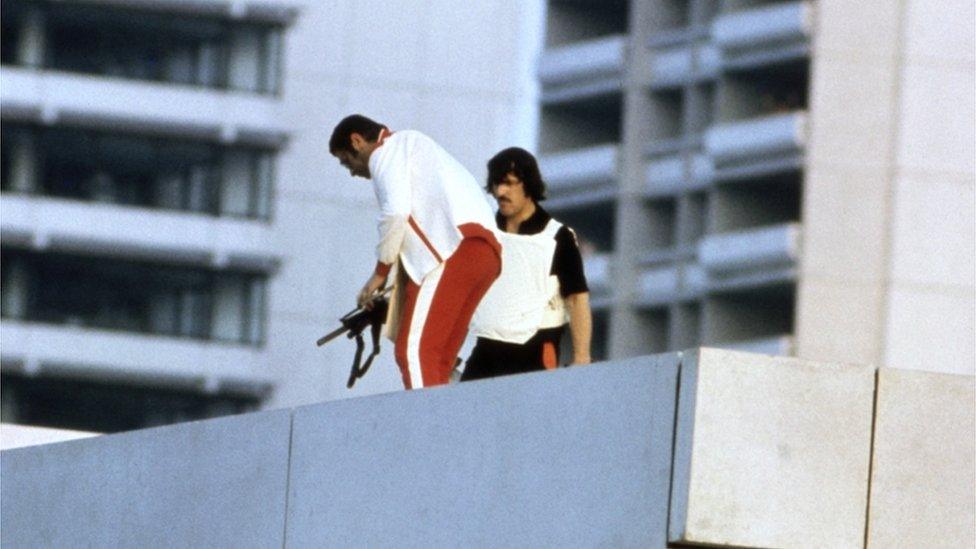
Palestinian militants took the Israeli national team hostage at the 1972 Munich Olympics
England defender Chris Smalling spoke for many players this week when he said the squad had not even discussed the risk of a terror attack.
The head of Europol, meanwhile, has said he is concerned by the possibility of an attack, but also that he has been impressed by the French security effort.
Sport is no stranger to the threat of terrorism, of course.
One need only recall the 1972 Munich Games, when Palestinian militants took the Israeli national team hostage.
Or the 2011 cricket World Cup, which had to drop Pakistan as co-host, external after an attack on the Sri Lankan team in Lahore.
But sport is also resilient.
Terror warnings were a feature of the build-up to the London 2012 Games, and yet the event passed off peacefully.
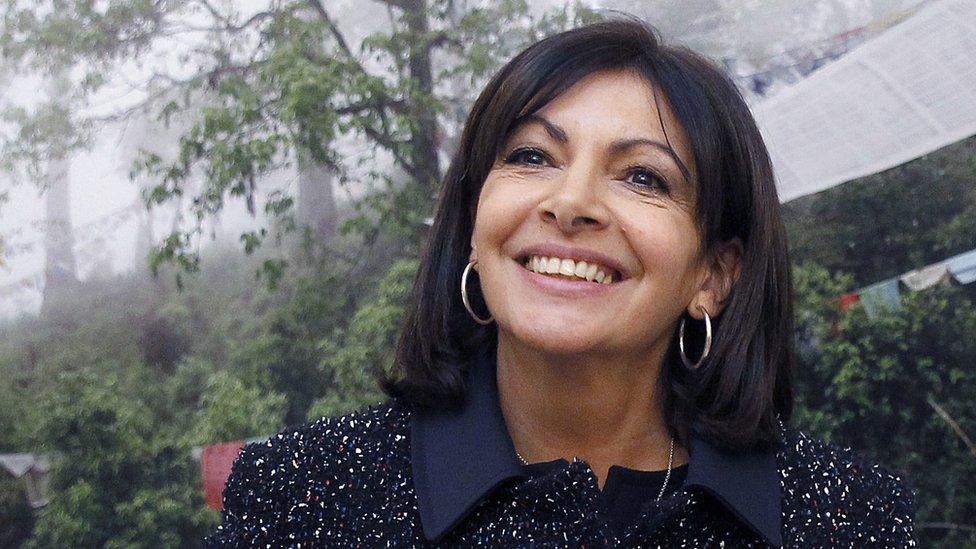
Anne Hidalgo wants the Euros to be a celebration
There were fears ahead of the 2014 Winter Games, after bomb attacks in Volgograd. Yet Sochi's security was a success.
Paris has just hosted the French Open tennis tournament. Six Nations rugby games and Champions League fixtures have all taken place in the capital over recent months without incident. It is bidding to host the 2024 Olympic and Paralympic Games, and regarded as one of the favourites.
"We want the Euros to be a celebration," Anne Hidalgo, the mayor of Paris, tells me in her office at City Hall on the banks of the Seine.
"After the attacks such an event is so important to mobilise the entire French population towards a more optimistic mood. It's also a way for us to say to the entire world that we are here and we will be welcoming you to Paris. We don't want to give up our way of life - that is the best answer to give to terrorists - and sport is a unifying factor."
Hidalgo has played an important role as the city tries to move on from November's trauma, and insists the authorities can deliver a successful and safe event.
"We have been preparing for months and months. The French parliament, the army and Interpol have worked together. We get inspiration from what London did in 2012. My message is come and enjoy this moment of fraternity."

Euro 2016 security
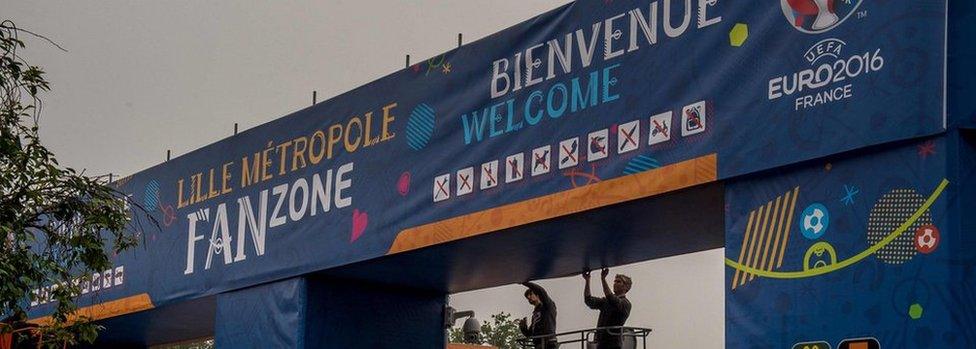
Security has been stepped up for the month-long tournament in France
90,000 police and other security officials to patrol fan zones and stadiums
Paris to have security force of at least 13,000 to patrol two zones and two stadiums
seven million people expected to visit 10 French cities, from Lille in the north to Marseille in the south
state of emergency in place after last November's jihadist attacks in Paris, in which 130 people died
officials deny a report that Paris police chief Michel Cadot had asked for the Eiffel Tower fan zone to be shut

Historically, it was hooliganism rather than terrorism that most concerned the organisers of international football tournaments.
But the world has changed, and sport has had to change with it.
Even now, it is unsettling to see armed soldiers on the streets of Paris, additional bag checks at fan parks, and double security perimeters around stadiums.
But it is also a sign of the times.
What once would have seemed excessive and out of place in a sporting context, now feels reassuring.
Many of those who come here will feel an inevitable sense of nervousness about the risk they are taking.
But they will also feel pride that they are part of something that shows that life carries on.
Euro 2016 is being staged in a country at war.
Some believe this is the wrong place and the wrong time to be hosting such an event.
Others, that the threat France faces is the very reason why Euro 2016 simply must take place, here and now.
- Published9 June 2016
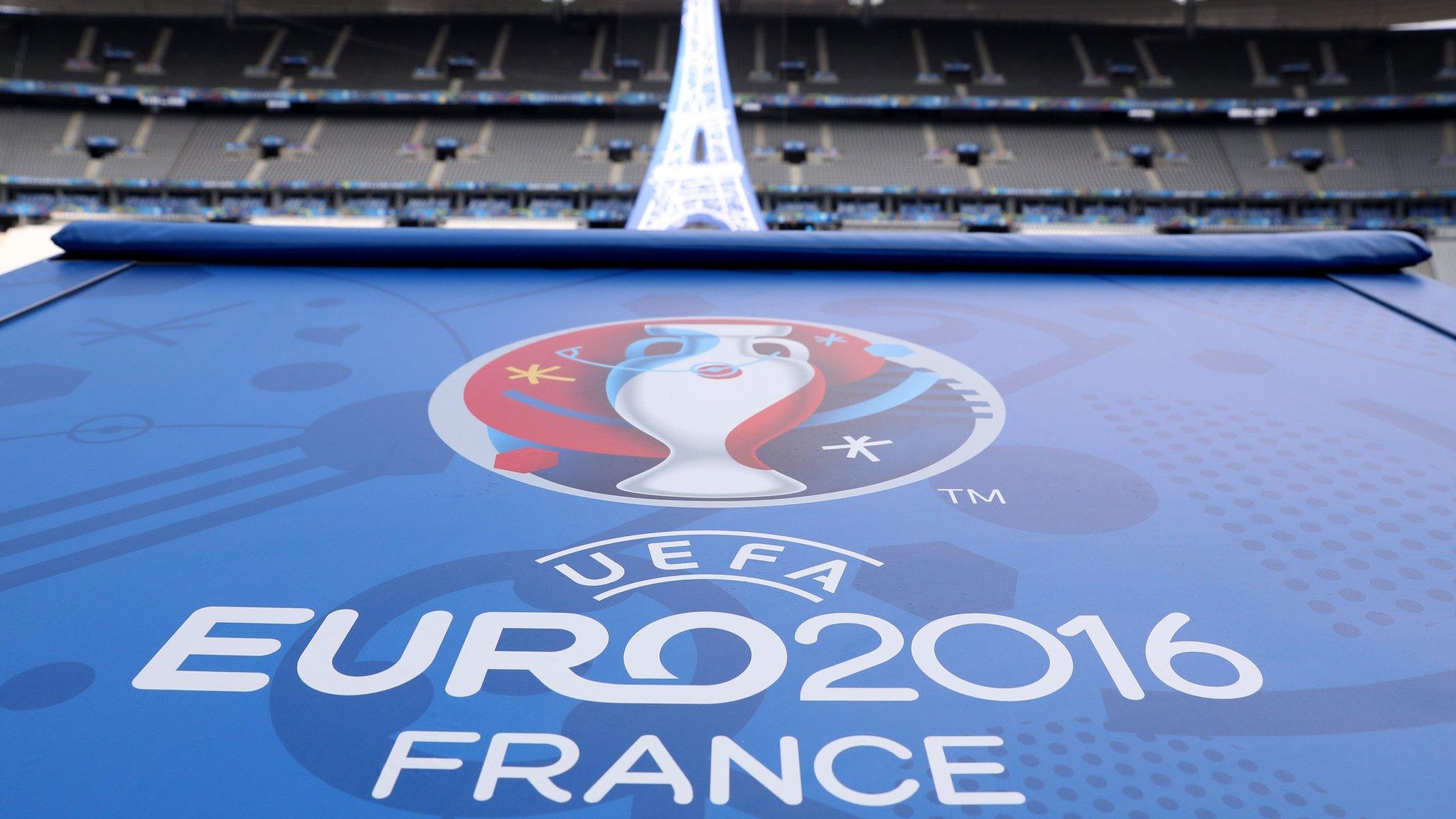
- Published25 June 2016
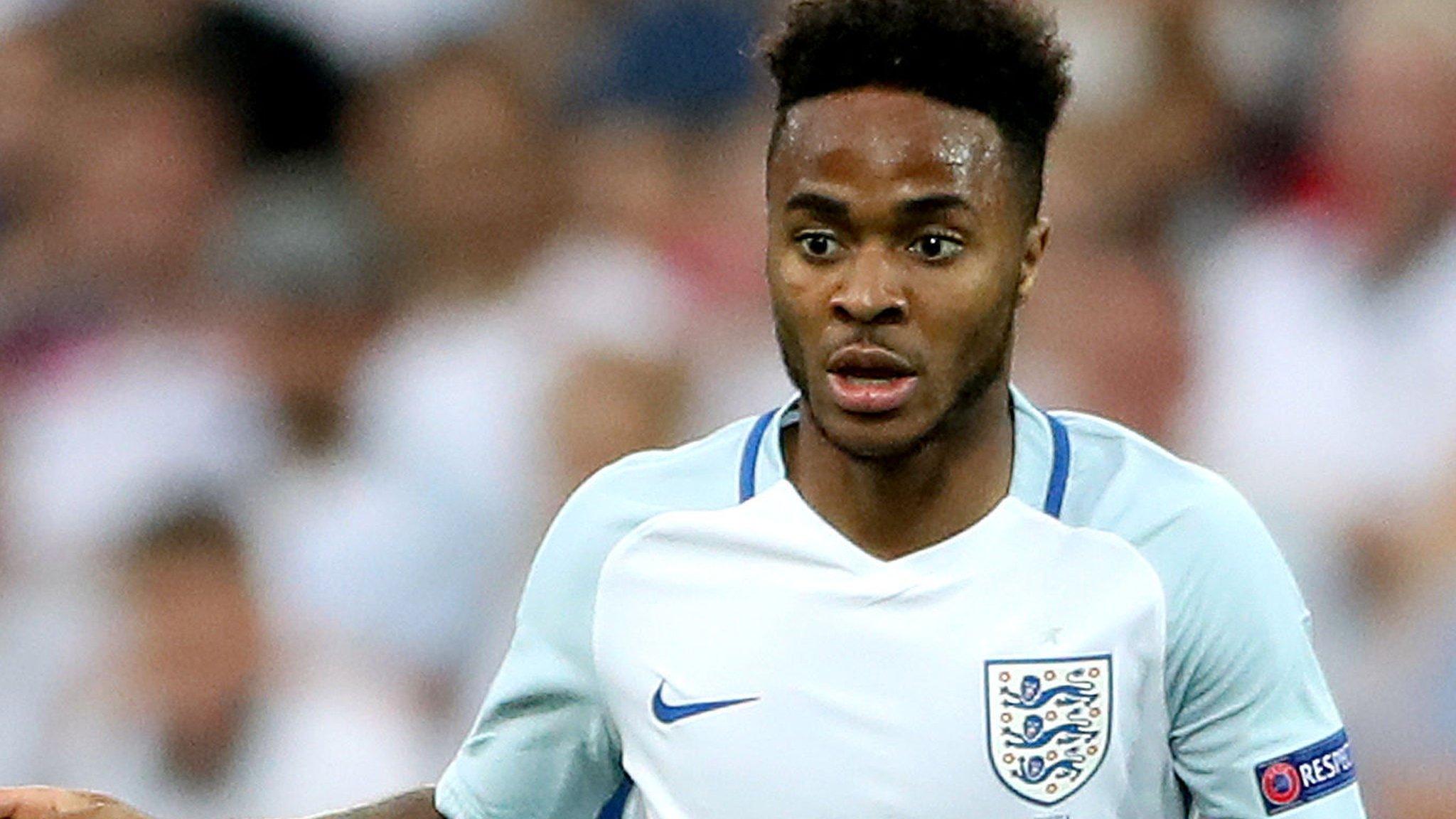
- Published8 June 2016
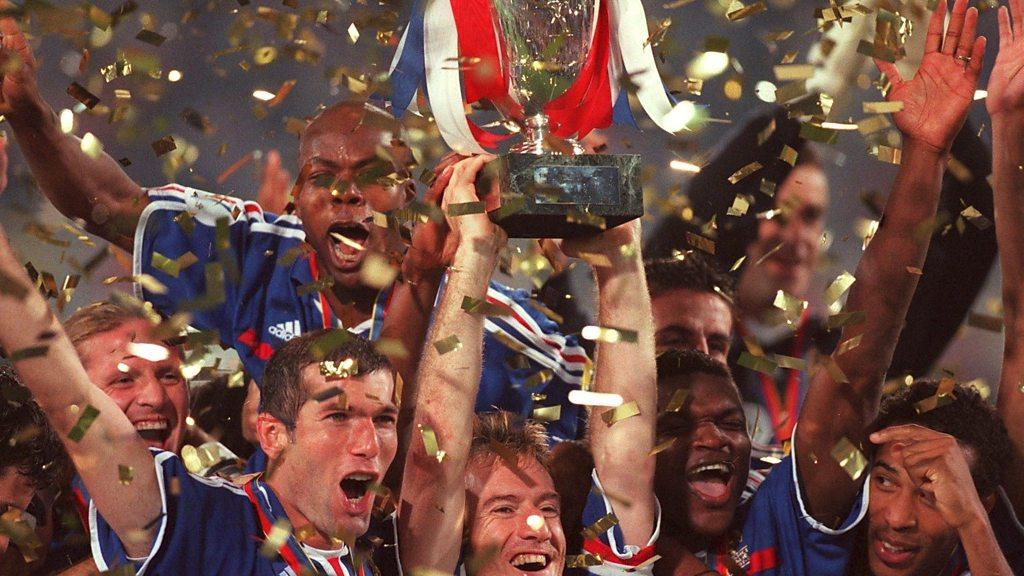
- Attribution
- Published6 June 2016
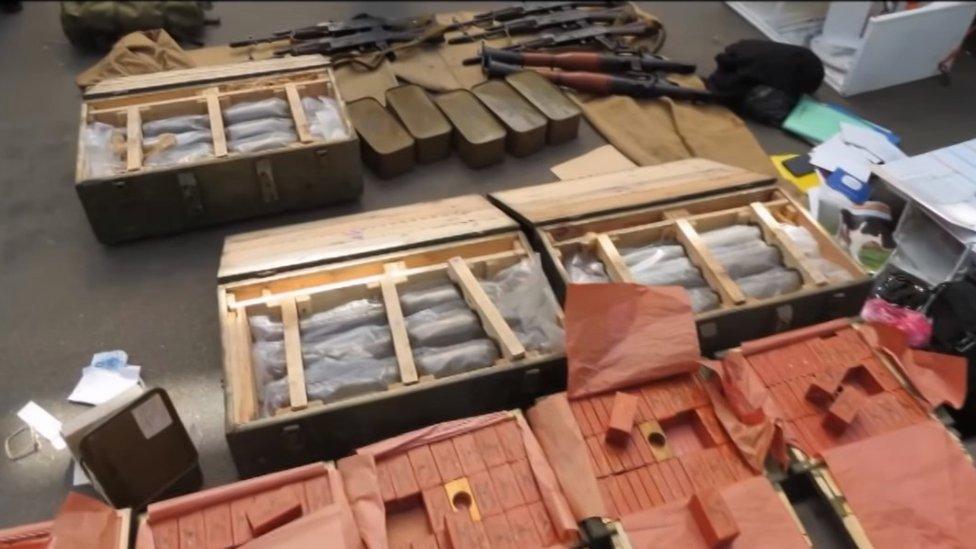
- Published9 June 2016
